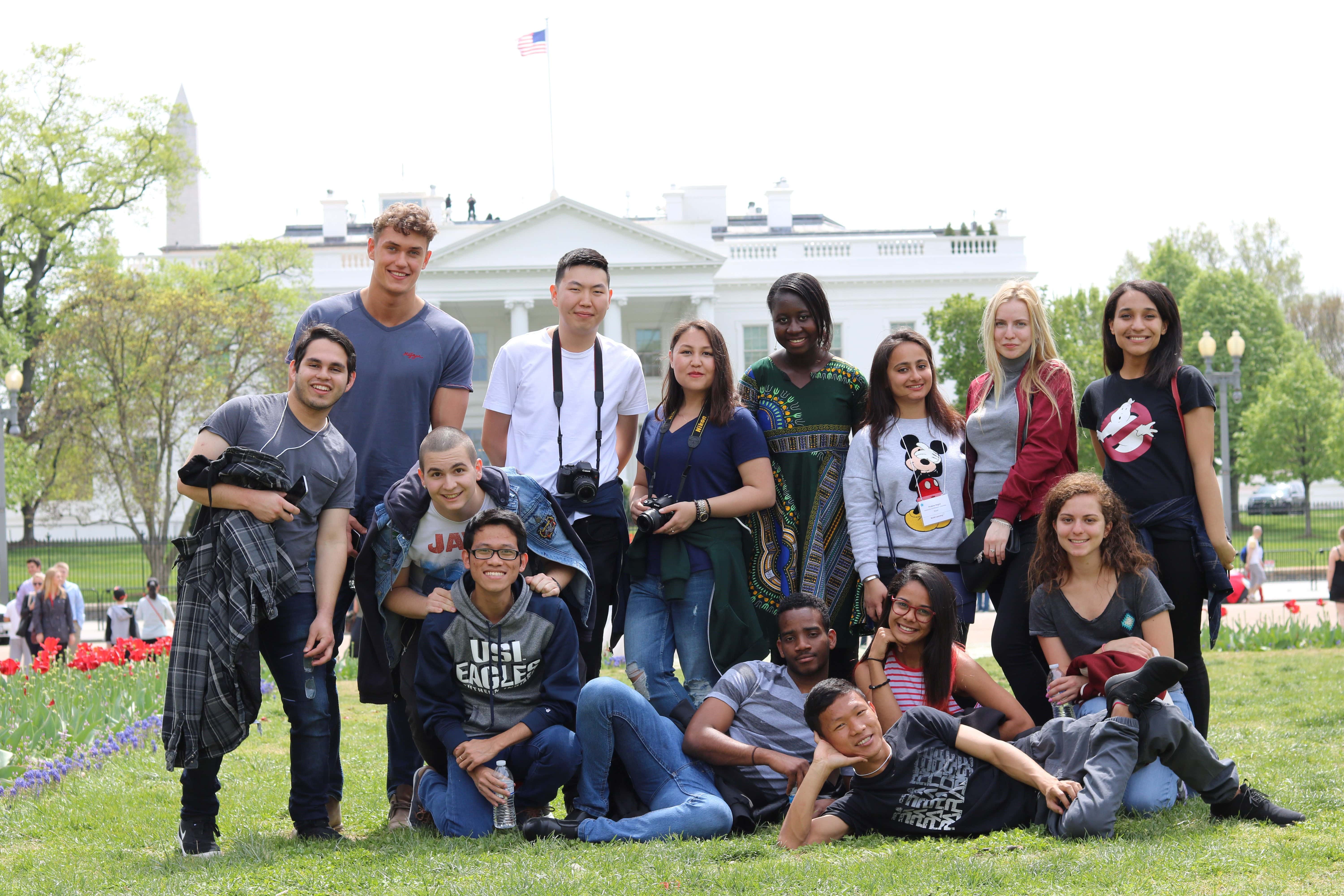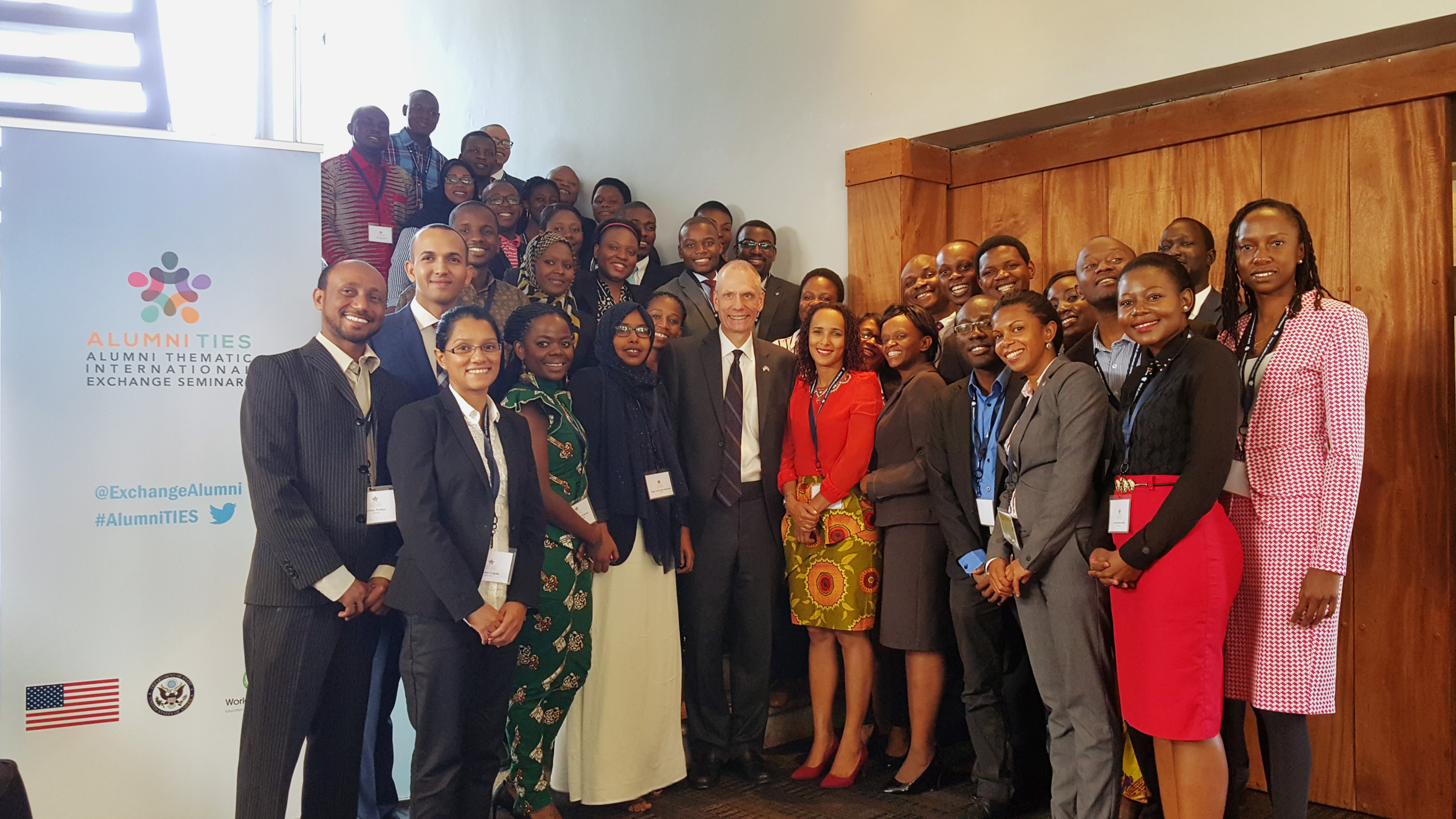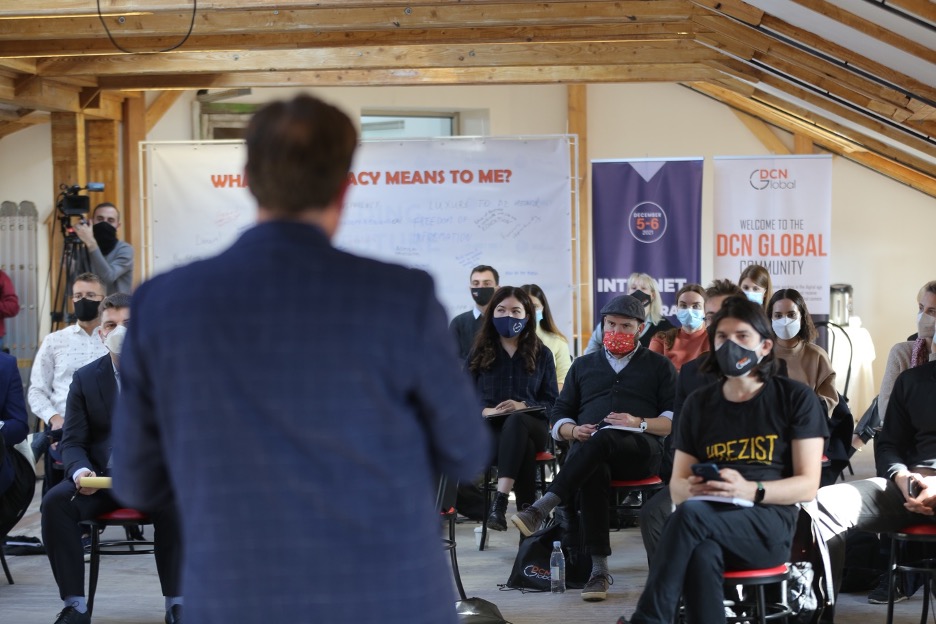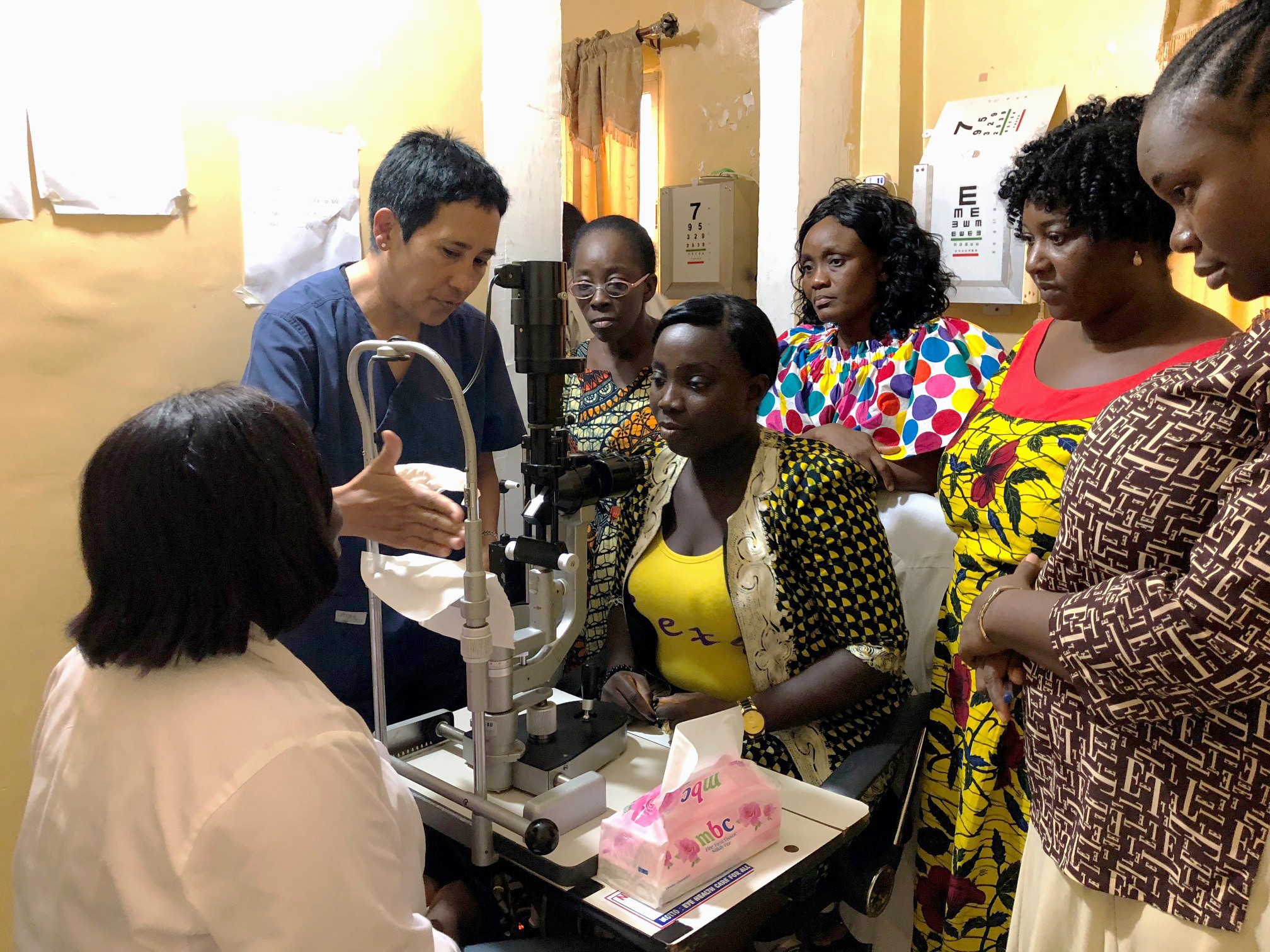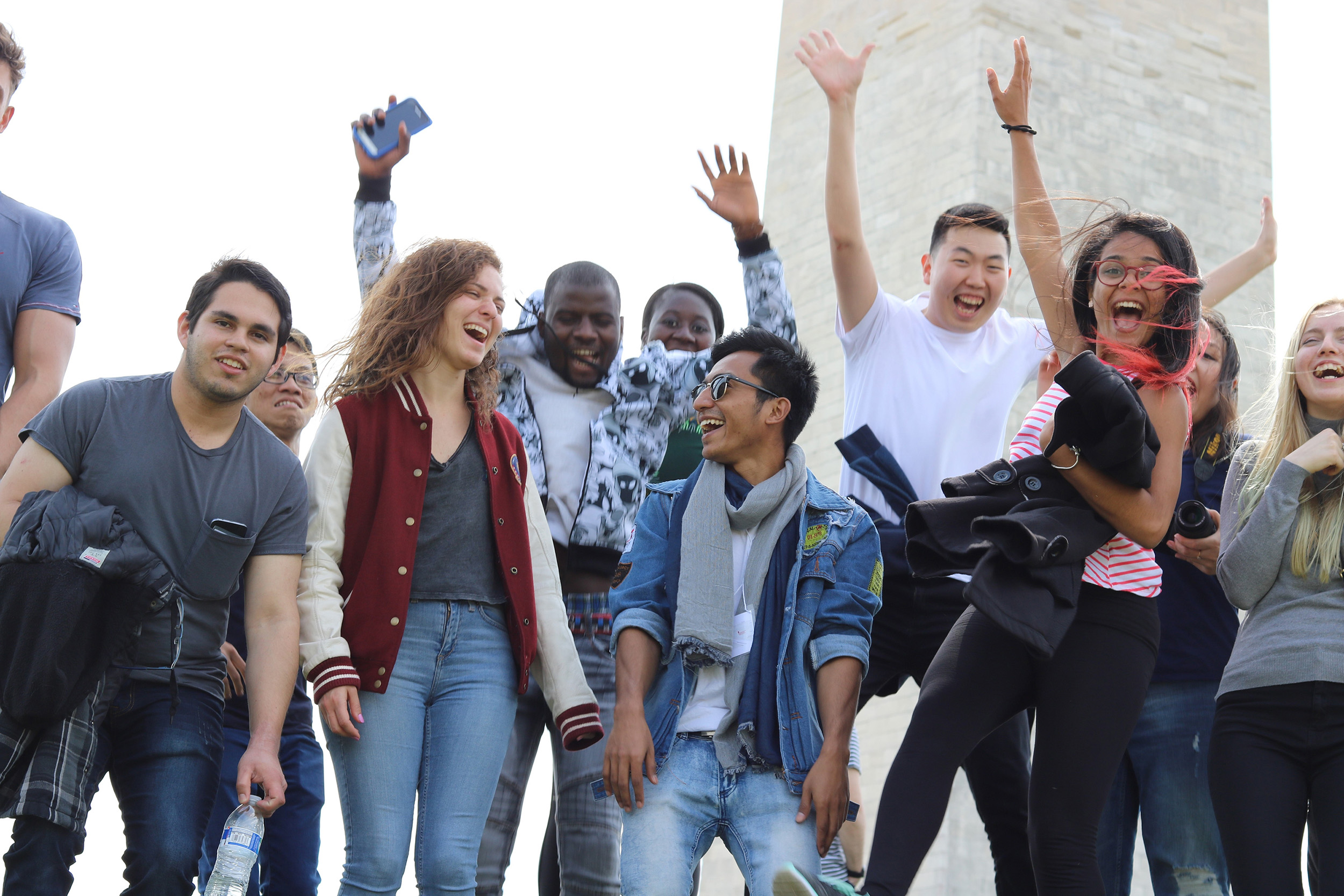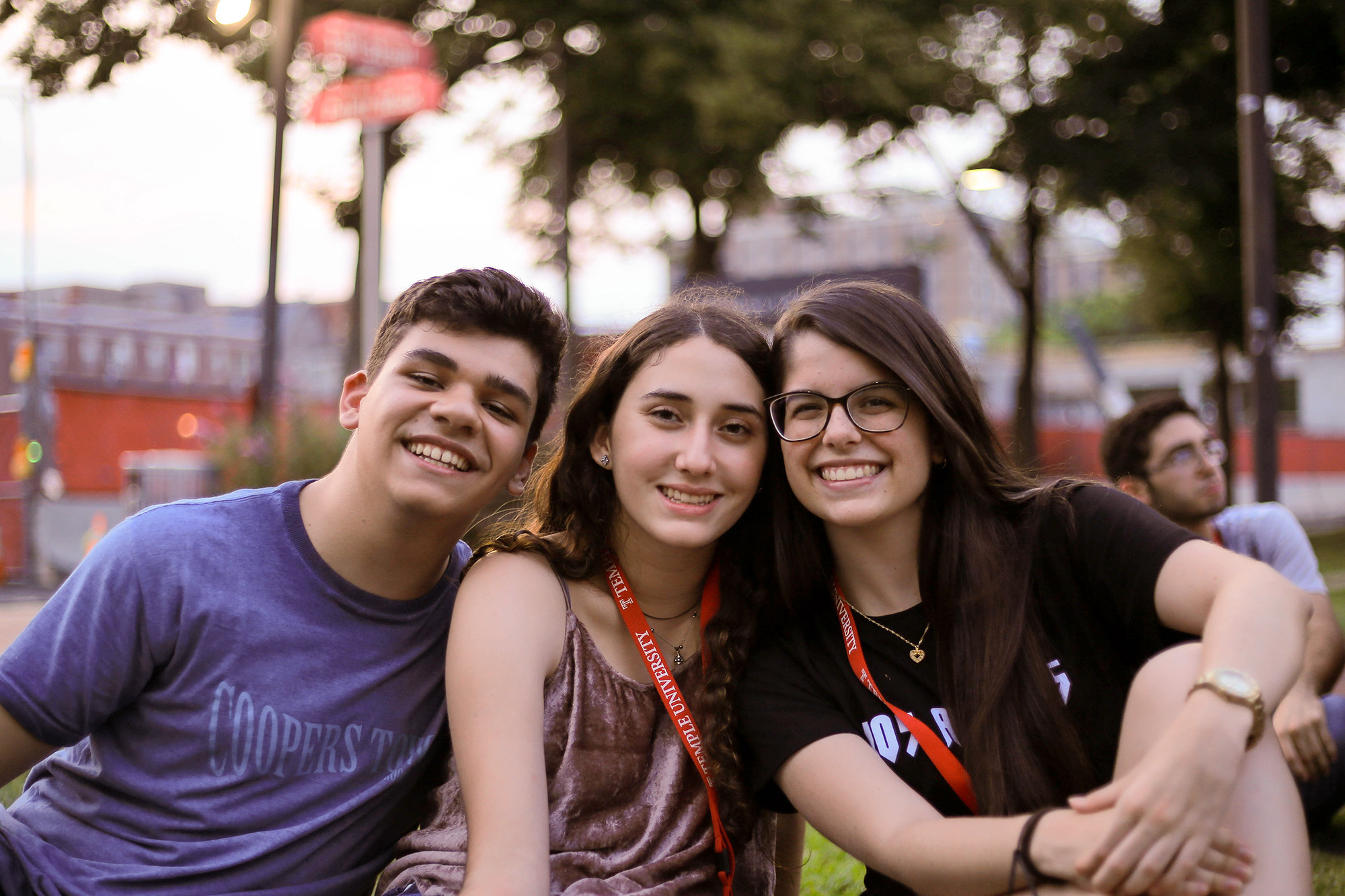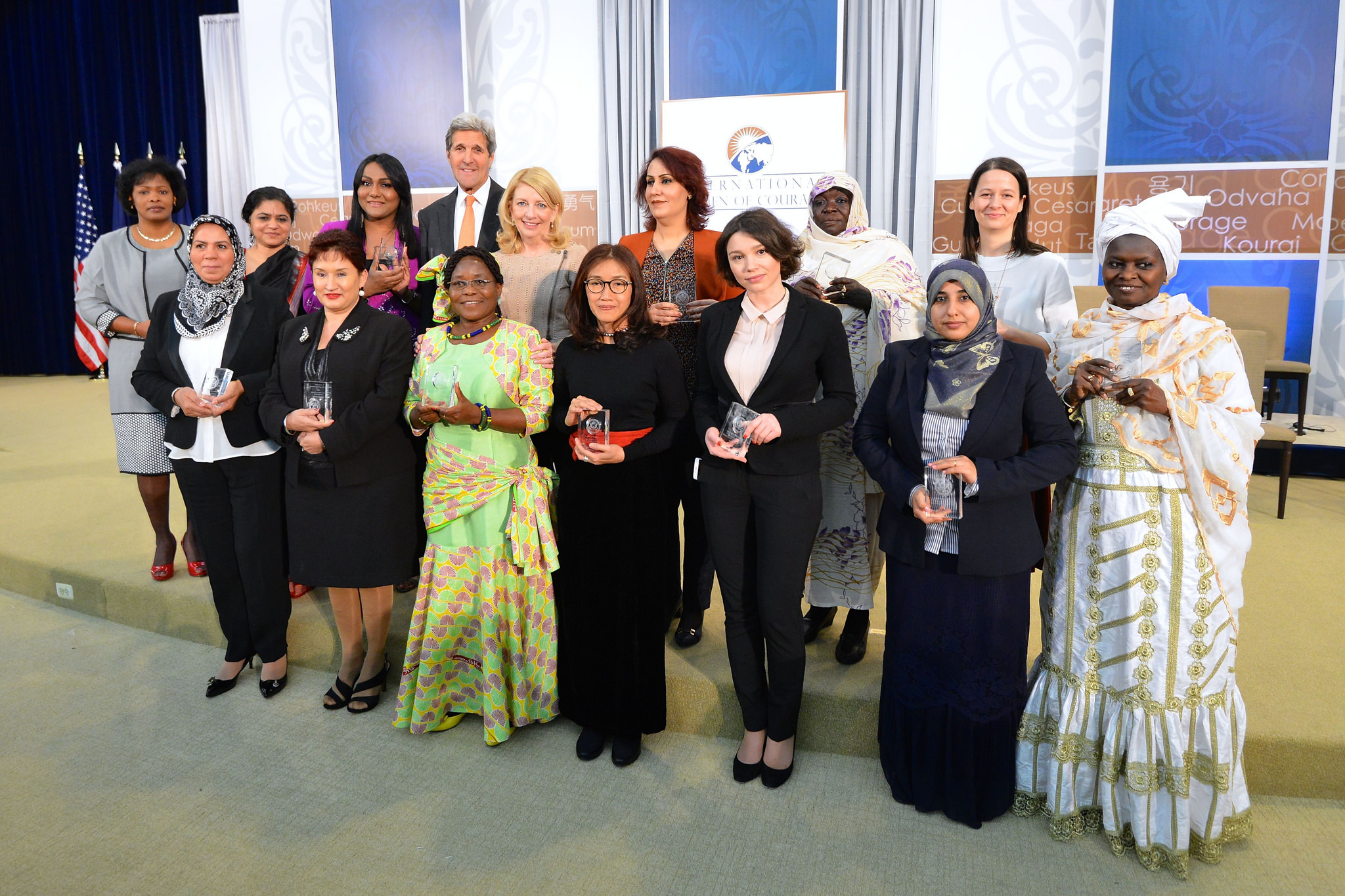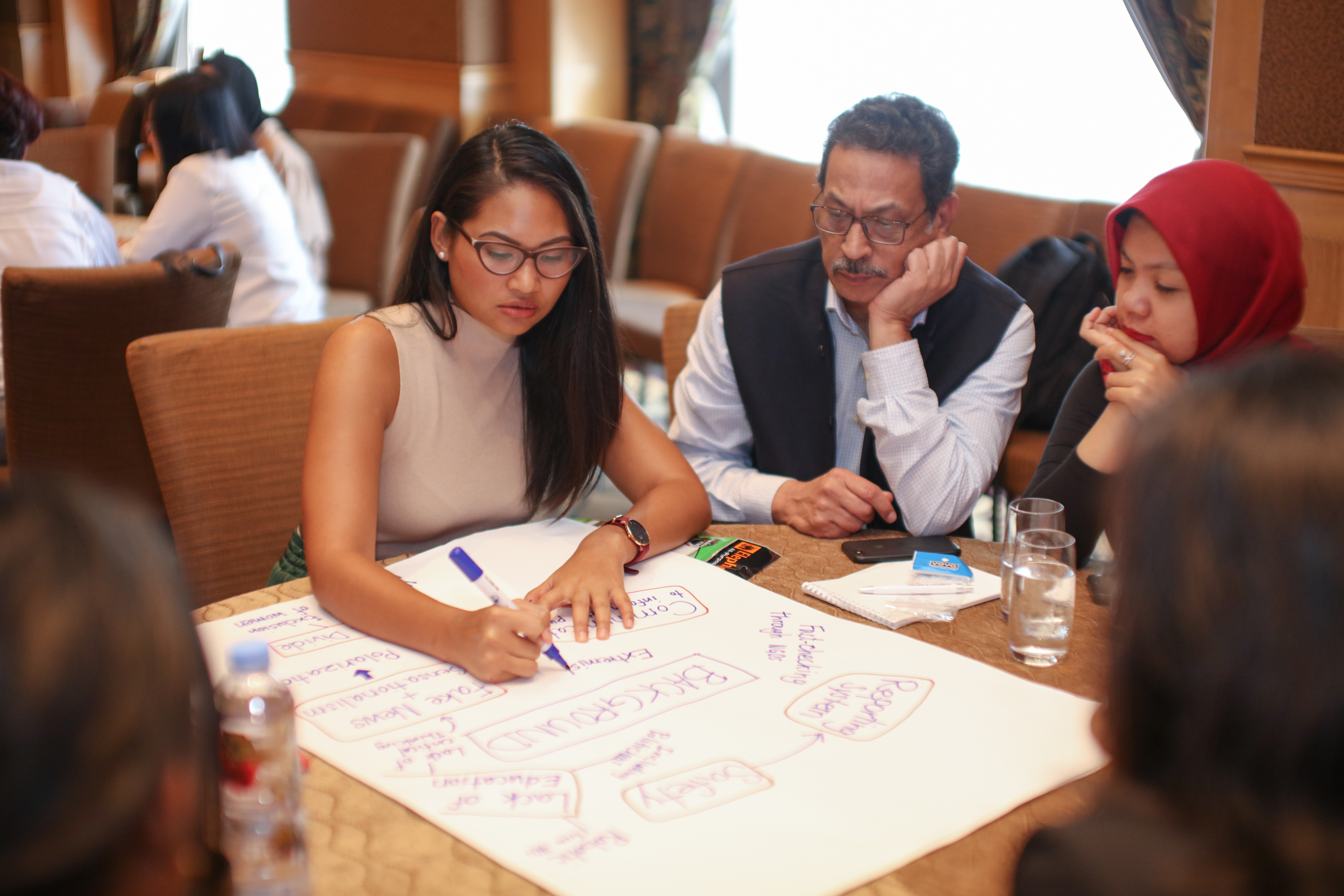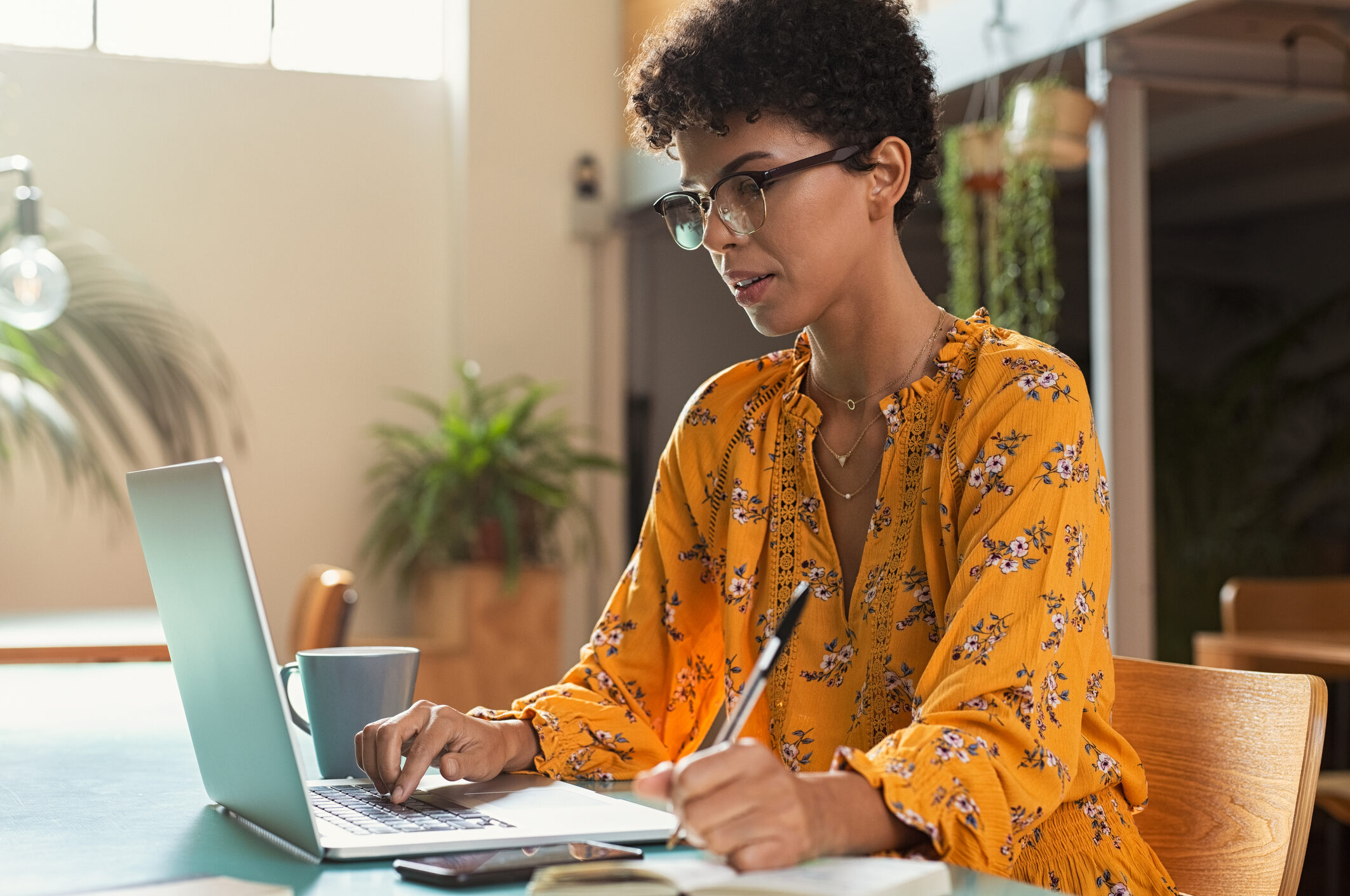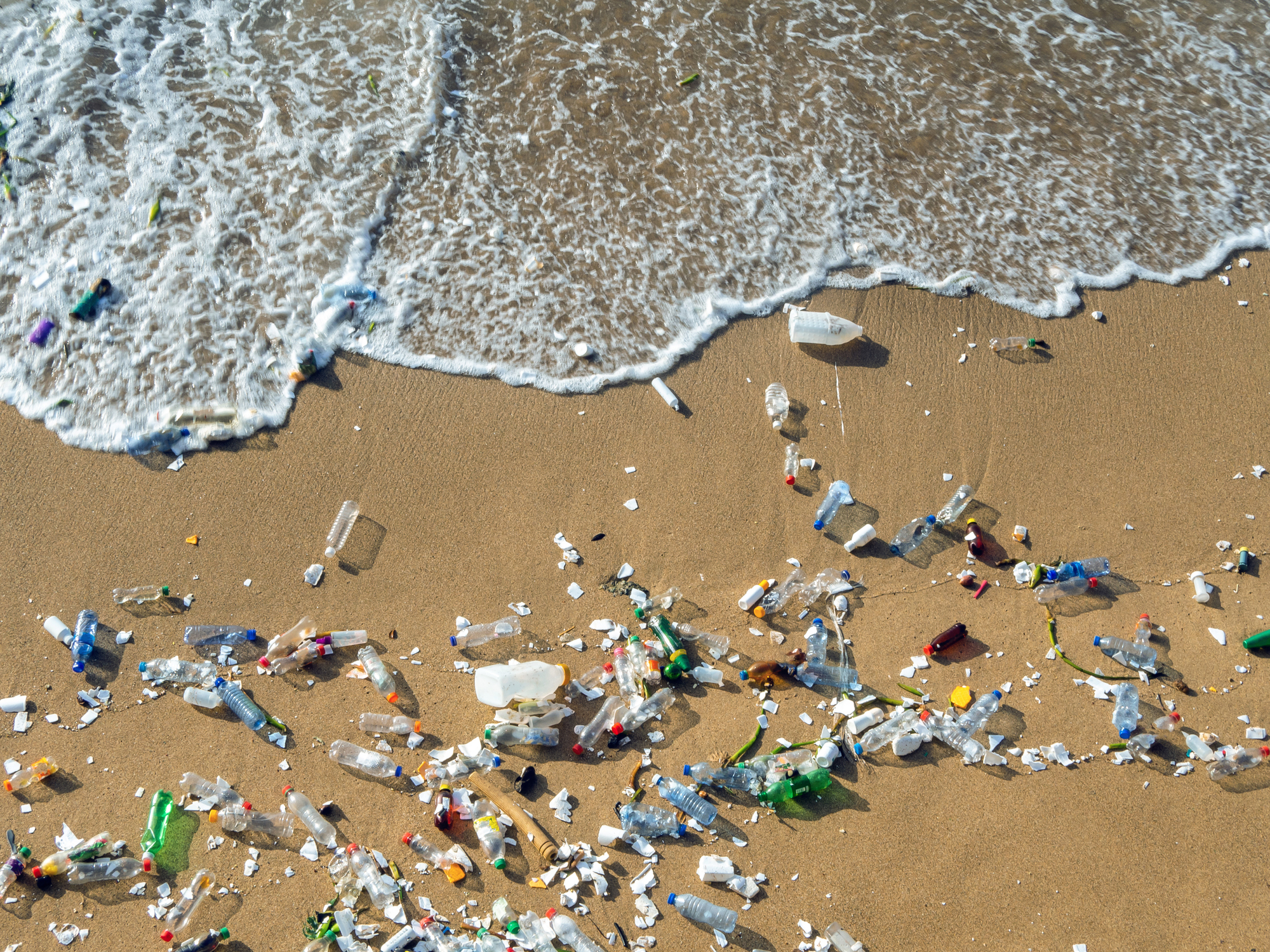-
What We Do
- WHERE WE WORK
-
About Us
 Welcome Message from Carol Jenkins
Welcome Message from Carol JenkinsFor more than 90 years, World Learning has equipped individuals and institutions to address the world’s most pressing problems. We believe that, working together with our partners, we can change this world for the better.
On my travels, I’ve had the opportunity to meet with many of those who have joined us in this mission. In Baghdad, we’ve trained more than 2,300 Iraqi youth who are already giving back at home. In London, our partners in the TAAP Initiative strongly believe that we are all responsible to practice inclusion. And in Vermont, our Experiment in International Living and School for International Training participants prove every day that they have the tools and the determination to change the world.
Please join us in our pursuit of a more peaceful and just world.
- Get Involved
Country: Vietnam
Cultivating Entrepreneurship: A Fulbright Specialist Brews Business in Vietnam
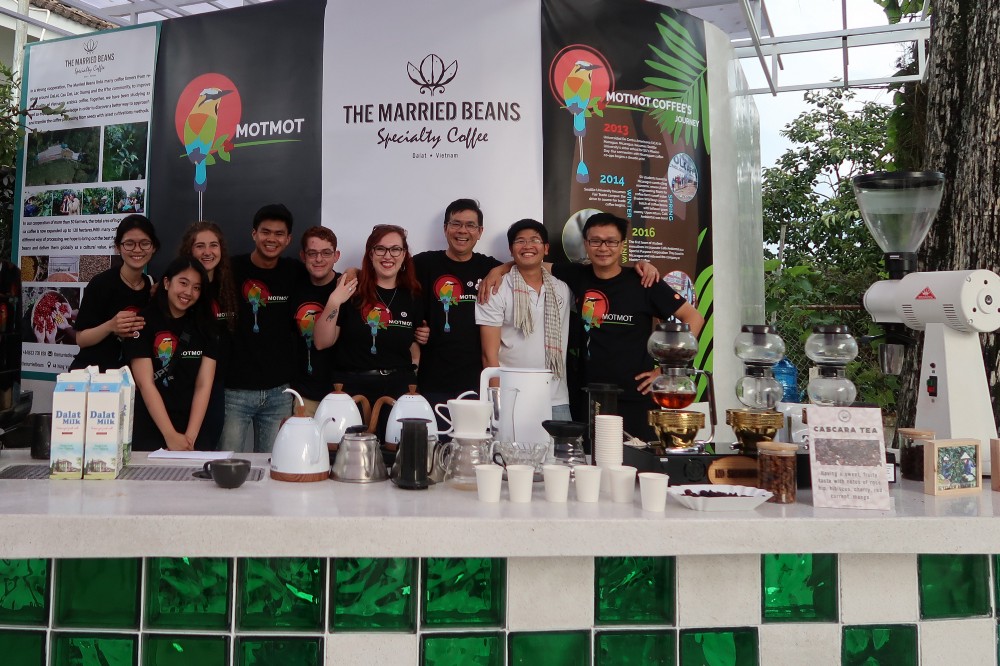
Dr. Quan Le, Associate Professor of Economics and Director of the International Business Program at Seattle University, served as a Fulbright Specialist at Dalat University in Vietnam for six weeks in the summer of 2017. The primary focus of his visit was to advise faculty who are preparing Dalat University’s international business program to meet requirements for accreditation from the ASEAN University Network. In addition, Dr. Le helped his host institution launch an entrepreneurial center and create enduring ties with his university in the U.S. We recently caught up with the Fulbright Specialist to hear more about his assignment, what he achieved, and how the visit opened new entrepreneurial and learning opportunities for his students in Seattle.
What was the primary goal of the host institution you worked with as a Fulbright Specialist?
My main focus was to help Dalat University’s Faculty of Business Administration gain accreditation from the ASEAN University Network (AUN). I assisted them in developing the curriculum and reviewed the syllabi of all courses to make sure they met the requirements of the AUN.
How were you able to use your professional expertise to help Dalat University improve the quality of their business program to advance the accreditation process?
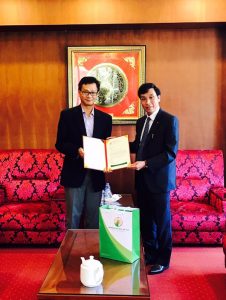 I have teaching experience in Vietnam and know what the curriculum should look like. I am familiar with the AUN accreditation process. We reviewed all the programs in the Faculty of Business Administration, and I helped them develop the new international business program. They already had something to begin with. I looked at the international business program at Seattle University, where I teach and serve as program director, and helped them set up a similar program. I helped them select the courses from a list of courses they already had and helped them develop the syllabi.
I have teaching experience in Vietnam and know what the curriculum should look like. I am familiar with the AUN accreditation process. We reviewed all the programs in the Faculty of Business Administration, and I helped them develop the new international business program. They already had something to begin with. I looked at the international business program at Seattle University, where I teach and serve as program director, and helped them set up a similar program. I helped them select the courses from a list of courses they already had and helped them develop the syllabi.
Can you tell me more about the Entrepreneurship Facilitator Center, which you helped establish while you were a Fulbright Specialist?
They were in the process of launching when I was a Fulbright Specialist at Dalat University. I worked with the director of the center and introduced her to my colleague, Amelia Marckworth, assistant director of the Innovation and Entrepreneurship Center at Seattle University. I supported the launch of the center while I was a Fulbright Specialist.
How did being a Fulbright Specialist in Vietnam enrich your professional life? What impact has it had on your work/classes at Seattle University?
After the Fulbright Specialist Program, I returned to Seattle University and last year I received a different grant for another working visit. My colleague and I took six students from Seattle University to Vietnam this past summer to work with students at Dalat University. We were there for three weeks.
Through Dalat University’s Entrepreneurship Facilitator Center, we worked on a sustainable coffee project. The university is in a region that grows high quality coffee. I got interested in coffee while I was a Fulbright Specialist in Dalat. They agreed to host my students while we worked closely with the Entrepreneurship Facilitator Center.
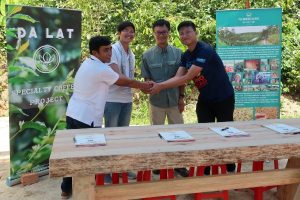 What came out of the follow-on student research trip? Any new ventures?
What came out of the follow-on student research trip? Any new ventures?
Seattle University’s Innovation and Entrepreneurship Center has an incubator where students run a coffee project working with Central American farmers to import the coffee to Seattle and sell it on campus. This group wanted to expand the project to Vietnam. We met with farmers in the Dalat area and signed a contract for this coming coffee harvest. The students ordered 1,000 pounds of coffee to ship over. This is our second brand. It will arrive around February.
Why was the Fulbright Specialist experience important to you?
I was born in Vietnam. I came to the U.S. when I was 12 years old, so it was important for me to return and help the country. What I learned as a Fulbright Specialist I was able to bring back to my current job in the U.S. and help my students in Seattle get real-world entrepreneurial experience through my contacts at Dalat University.
It sounds like your Fulbright Specialist experience was the beginning of a relationship between Seattle University and Dalat University’s Entrepreneurship Program that will continue on.
Yes, they modeled after us with similar activities such as incubators, coaching, and business plan competitions. Now that we have a connection I would like to do more with them. For example, at Seattle University, the students participate in the annual business plan competition. I would like our students to work with students at Dalat University on projects to compete in the event in the future. We have experience working with a university in India on an international business plan competition. I would like to replicate that with Dalat University. Dalat University also wants more of their students to interact with our students. I will work with them in December when I return to Dalat. We’ve established a relationship and I would like to continue it.
Vietnam
Making the Case for Liberal Education in Vietnam
Liberal education has a strong and dedicated proponent in Clark University’s Mary-Ellen Boyle. For decades, the associate management professor has taught and advocated for liberal education, which she believes prepares students for the real world by helping them develop communication and critical thinking skills, the ability to problem-solve, and a basic understanding of ethics and social responsibility.
Boyle wanted to test her beliefs in another culture.
She applied to the Fulbright Specialist Program, and after being approved to join the Fulbright Specialist Roster, was matched with a project at Hoa Sen University in Vietnam to provide technical assistance to faculty.
“I’ve always been interested in Vietnam,” says Boyle, adding that she was the third Fulbright Specialist invited to the university and was keen to build on the work of her predecessors.
Located in Ho Chi Minh City, Hoa Sen University concentrates on science, technology, and business, training students to work in these rapidly growing fields. There are few classes exploring humanities or the social sciences, hallmarks of a liberal arts education in the U.S.
One of Boyle’s challenges was to impress upon the faculty, staff, and students that a liberal education is compatible with specialization and can actually enhance professional training.
“I don’t think it should be either/or,” says Boyle, who as Associate Provost and Dean of the College at Clark University was instrumental in facilitating the integration of LEEP (Liberal Education and Effective Practice) into the university’s undergraduate curriculum. The pioneering program links liberal education with practice through internships, study abroad experience and projects.
Boyle also served as the faculty director of the Innovation and Entrepreneurship Department and a professor at the Graduate School of Management where she teaches Business in Society, Entrepreneurship-Social Impact, Global Business Seminar, and Applying the Art & Science of Management.
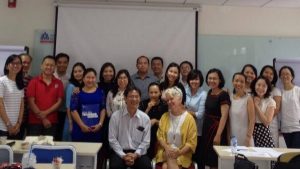 In Vietnam, her role was to show how liberal education’s values and ways of thinking could be incorporated into instruction to better equip students to manage the complexity and rapid changes in an emerging economy.
In Vietnam, her role was to show how liberal education’s values and ways of thinking could be incorporated into instruction to better equip students to manage the complexity and rapid changes in an emerging economy.
“It was a brand new idea for some of the faculty,” admits Boyle.
She didn’t lecture. Instead, Boyle offered 15 three-hour workshops for faculty and professional staff. She introduced tools, ideas, and techniques to support more active learning as opposed to trying to promote large-scale curriculum reform.
For instance, Boyle modeled an interactive teaching style and facilitated discussions which she hoped instructors would emulate in their classrooms in place of the strictly passive learning style that currently dominates.
Typically, instructors lecture to students taking notes, who then commit the information to memory and show their mastery of it by repeating it back on exams, a common education practice throughout much of Asia.
The university’s provost, Loc Pham Quoc, supports the initiative to emphasize critical thinking skills and a more active approach to teaching. He was introduced to the American philosophy of liberal education during his time as a graduate student at the University of Massachusetts at Amherst, where he earned his Ph.D.
Although she spent most of her waking hours working, Boyle says her Fulbright Specialist experience recharged her batteries.
“There are so many benefits. [The experience] can reenergize you in ways that you didn’t know you needed,” she says.
Adding, “It made me rethink the purpose of higher education.”
The Fulbright Specialist Program was established in 2001 by the U.S. Department of State and the Bureau of Educational and Cultural Affairs (ECA) to enable U.S. professionals and scholars to work on short-term projects overseas in conjunction with local host institutions.
For more information about the Fulbright Specialist Program or to apply, please go to: https://fulbrightspecialist.worldlearning.org/the-fulbright-specialist-program/
Alumni Thematic International Exchange Seminars
Participant Profile
Participants are alumni of U.S. government-sponsored exchange programs and vary in age and level of expertise, but all will be engaged in the seminar topic and highly motivated to create change in their communities.
Please consult the list of U.S. government-sponsored exchange programs below.
- U.S. citizen: https://exchanges.state.gov/us
- Non-U.S. citizen: https://exchanges.state.gov/non-us
Participant Selection
Alumni TIES participants who are not U.S. citizens are nominated by the U.S. Embassies or Consulates in their countries. Please contact the U.S. Embassy or Consulate in your country to learn how you can participate in Alumni TIES. Potential Alumni TIES participants who are living in the United States can apply for specific seminars managed by World Learning. The web link to the online application will be distributed widely by the Office of Alumni Affairs of the Bureau of Educational and Cultural Affairs.
All participants for Alumni TIES seminars are selected by the U.S. Department of State.
Program Design
Alumni TIES seminars take place in six world regions and the U.S.; each seminar is three to four days for small groups of alumni. The seminars include speakers, capacity development trainings, and alumni networking activities. Through the small grants initiative, alumni have the opportunity to take action and make a positive difference in their communities.
Learn More
Watch more videos about the Alumni TIES program.
Read stories from past participants about their experiences at the seminars or with their small grant projects on the Alumni TIES blog.
For information on programs for U.S. government-sponsored exchange program alumni visit the International Exchange Alumni website.
Alumni TIES is sponsored by the U.S. Department of State with funding provided by the U.S. Government and supported in its implementation by World Learning, in partnership with the Office of Alumni Affairs of the Bureau of Educational and Cultural Affairs (ECA).
Digital Communication Network
Examples of Past Digital Communication Network Projects
- Internet vs. Democracy Forum
- Roaring 20s #Digital Forum
- Combatting Disinformation Training Program
- Digital and Media Literacy for NGOs Training Program
- Tolerance and Coexistence 2.0 Forum
- Montenegro Digital Influencers Hub
- Humor and Games for Social Good Forum
Fulbright Specialist Program
What?
Link U.S. Experts and International Institutions
A program of the U.S. Department of State, Bureau of Educational and Cultural Affairs, the Fulbright Specialist Program is a unique opportunity for U.S. academics and established professionals to engage in two- to six-week consultancies at host institutions across the globe. Host institutions, including universities, non-profits, and other organizations, develop and submit projects for approval by the U.S. Embassy or Fulbright Commission in their country in wide-ranging academic and professional fields that build capacity and promote long-lasting linkages between individuals and institutions in the U.S. and abroad.
Why?
Address Priorities and Build Institutional Capacity at Institutions Around the World
An important companion to the traditional Fulbright Scholar Program, the Fulbright Specialist Program differs by providing short-term exchange experiences that tackle discrete, sometimes rapid response, projects. The Fulbright Specialist Program encourages participation of both university faculty and highly experienced non-academics, including legal experts, business professionals, public health practitioners, scientists, IT professionals, artists, and journalists. The program is a mutually beneficial opportunity for the Specialist who may not be available to leave their position for an extended period of time and the host institution which needs an experienced partner to jointly tackle a problem or examine an issue on a short-term basis.
How?
Become a Fulbright Specialist: Apply to Join the Roster
Fulbright Specialists are a diverse group of highly experienced, well-established faculty members and professionals who represent a wide variety of academic disciplines and professions. In order to be eligible to serve as a Fulbright Specialist, candidates must have significant experience in their respective professional field and be a U.S. citizen at time of application. Eligible disciplines and professional fields supported by the Fulbright Specialist Program are listed below.
- Agriculture
- American Studies
- Anthropology
- Archeology
- Biology Education
- Business Administration
- Chemistry Education
- Communications and Journalism
- Computer Science and Information Technology
- Economics
- Education
- Engineering Education
- Environmental Science
- Law
- Library Science
- Math Education
- Peace and Conflict Resolution Studies
- Physics Education
- Political Science
- Public Administration
- Public/Global Health
- Social Work
- Sociology
- Urban Planning
Interested candidates can find more information about the Fulbright Specialist Program and apply to serve as a Specialist at fulbrightspecialist.worldlearning.org. Candidates who meet all eligibility requirements will have their full applications reviewed by a panel of their professional peers. Candidates who are approved by the peer review panels will then join the Fulbright Specialist Roster. Individuals remain on the Specialist Roster for a three-year term and are eligible to be matched with a host institution’s project abroad during that tenure.
The following costs are covered for those Fulbright Specialists who are matched to a project: international and domestic airfare, ground transportation, visa fees, lodging, meals, and incidentals. A daily honorarium is also provided.
Become a Host: Bring a Fulbright Specialist to Your Institution
The Fulbright Specialist Program allows universities, cultural centers, non-governmental organizations, and other institutions abroad to host a leading U.S. academic or professional to work on diverse, short-term collaborative projects where the Specialist conducts activities which may include, but are not limited to:
- Delivering a seminar or workshop
- Consulting on faculty or workforce development
- Developing academic or training curricula and materials
- Lecturing at the graduate or undergraduate level
- Conducting needs assessments or evaluations for a program or institution
Institutions interested in hosting a Fulbright Specialist should contact their local Fulbright Commission or U.S. Embassy for country-specific requirements and deadlines.
Contact information for all participating countries is available on the fulbrightspecialist.worldlearning.org website.
For more information or questions about the Fulbright Specialist Program, please email [email protected].
The Fulbright Specialist Program is a program of the U.S. Department of State with funding provided by the U.S. government and administered by World Learning.
Global Undergraduate Exchange Program
For highlights from the Global UGRAD Program, visit our newsletter, the Global Gazette.
EducationUSA Academy
For further information: [email protected]
“Through EducationUSA Academy, I made new friends from all over the world, I learned about the American education system and requirements for getting accepted to an American university, and I visited one of the most interesting places in the United States in a friendly and helpful group.” -2017 EducationUSA Academy participant
Student Eligibility
Participants must:
- Be students (currently enrolled or recently graduated), ages 15-18 at the time of the summer program;
- Have at least three years of middle to high school English language study (language requirements may vary slightly by institution);
- Be mature and self-disciplined, with a commitment to active participation in the Academy and its programming;
- Aspire to pursue a portion of their higher education in the U.S.; and
- Have sufficient personal funds to cover program fees and international airfare.
More information is available from your local EducationUSA adviser. To find your local EducationUSA advising center, please visit the EducationUSA website.
Follow the program on Facebook, Twitter, and Instagram.
EducationUSA Academy is sponsored by the U.S. Department of State with funding provided by the U.S. Government and administered by World Learning.
Global UGRAD
International Visitor Leadership Program
End of Year Report
Chosen by U.S. embassies worldwide to participate, distinguished professionals include:
- parliamentarians
- government officials
- entrepreneurs
- NGO leaders
- journalists
- academics
- arts administrators
- mid-career professionals
Programs focus on policy issues in areas such as:
- government
- international security
- foreign policy
- entrepreneurship
- economics and trade
- media
- women’s leadership
- education
- public health
- arts
- agriculture
- disability rights and inclusion
World Learning staff members design national itineraries, arrange logistics, set up meetings in Washington, DC, and coordinate the collaboration of U.S. Department of State program officers, interpreters and International Visitor Liaisons, and more than 85 community-based member organizations from the Global Ties U.S. Network who arrange local programs nationwide.
Participants
Most participants are mid-career professionals and emerging leaders, and for many, this is their first visit to the U.S. Groups are of varying sizes, from single visitors to groups of 25 or more. World Learning program staff work closely with their State Department counterparts to design a program customized to the project objectives and the visitors’ interests.
Participant Selection
IVLP candidates are selected solely by U.S. embassy personnel in each country. There is no application form. World Learning is a private sector partner of the U.S. Department of State; our role is limited to designing programs for participants once they arrive in the U.S. For further information regarding the program, please consult the U.S. Department of State’s website.
Program Design
A typical project includes up to a week of meetings in Washington, DC, to provide an orientation and overview of the theme and to introduce visitors to federal officials and agencies, national organizations, academics and think tanks, nonprofits and NGOs, and professionals in their specific field of interest. All projects include a briefing on the US federal system of government. Meetings may include panel discussions, site visits, workshops, individual interlocutors, job shadowing, or service opportunities. Visitors typically travel to an additional three or four cities in geographically diverse regions of the country; the itinerary may include a state capital and a small town to provide first-hand exposure to the great diversity that exists in the U.S. Also included in the program design are hospitality dinners, school visits, community service activities, and cultural events such as rodeos, state fairs, festivals, visits to national parks, or events that highlight some unique aspect of the region visited.
Participant Experience
“My recent experience in the IVLP program is so far the deepest ever for me to see and understand the full picture of what America as a country is like. I strongly believe this program will have a very long-term impact on my views about America and the world and to some extent it has already helped me to understand many long-time questions.” – Journalist from China
The International Visitor Leadership Program is sponsored by the U.S. Department of State with funding provided by the U.S. Government and administered by World Learning.
Leaders Lead On-Demand Program
Examples of past leaders Lead On-Demand Projects:
- Vietnam Legal Aid
- Refugee Integration and Resettlement in Central and Eastern Europe
- Sports Leadership Program for Colombia
- Mongolia Disability Rights Legislation and Implementation
- Promoting Open Educational Resources: Middle East and North Africa
- Tourism and Development in Serbia and Kosovo
- Religious Freedom and Interfaith Dialogue for Myanmar, India, Indonesia, Malaysia, Sri Lanka, and Thailand
- Emerging Leaders Exchange for Northern Ireland and the Republic of Ireland
- Environmental Advocacy for Mongolia
- Getting Connected Program for the South Pacific
- Civic Engagement Program for Moldova
- Disinformation and Fact Checking in Kenya
The Leaders Lead On-Demand is sponsored by the U.S. Department of State with funding provided by the U.S. Government and administered by World Learning.
Online Professional English Network Program (OPEN Program)
2022 YSEALI Regional Workshop: Marine Warriors
Event Overview
The 2022 Young Southeast Asian Leaders Initiative (YSEALI) Regional Workshop: Marine Warriors brings together 100 participants from ASEAN countries and Timor-Leste to Nha Trang, Vietnam from December 1-6, 2022. This hand-on workshop will involve participants engaging in interactive skill-building training sessions, expert presentations and case studies, a site visit to learn about efforts to protect Vietnam’s fragile coastal environments and environmental issues firsthand, and a game jam. The game jam is an exciting hackathon-style component, joining together environmentalists and game developers across the ASEAN region and Timor-Leste to innovate and develop solutions for marine environmental degradation via game production.
Participant Eligibility
Applicants must:
- Be between the ages of 18 and 25 at the time of application;
- Be a citizen and a resident of one of the following countries: Brunei, Burma, Cambodia, Indonesia, Laos, Malaysia, Philippines, Singapore, Thailand, Timor-Leste, or Vietnam;
- Be a YSEALI member. You may either be an existing YSEALI member, or you can become a member at https://asean.usmission.gov/yseali/;
- Be proficient in reading, writing, and speaking English;
- Demonstrate strong leadership qualities and potential in your university, place of work, and/or community;
- Demonstrate interest, knowledge, or professional experience in environmental sustainability and sustainable development;
- Be willing to actively participate in an intensive program in Vietnam and follow-on projects in your home-country; and
- Have a commitment to apply leadership skills and know-how to benefit your community, country, or the ASEAN region.
The workshop will include a component of gaming for social good. While game development skills are not needed for selection, we count on your commitment to participate in the gamification-related segments of our workshop.
Participant Commitment
Prior to the program, participants will be asked to produce a story, using multimedia or digital platforms, about environmental coastal degradation (preferred), or any environmental or civic issues relevant to their home countries. Participants will attend the Workshop and present their stories. Additionally, participants will join several virtual training sessions prior to the program in December and are expected to join post-program engagement activities including actively supporting influencer hubs in their home countries focusing on using gaming in support of environmental protection.




